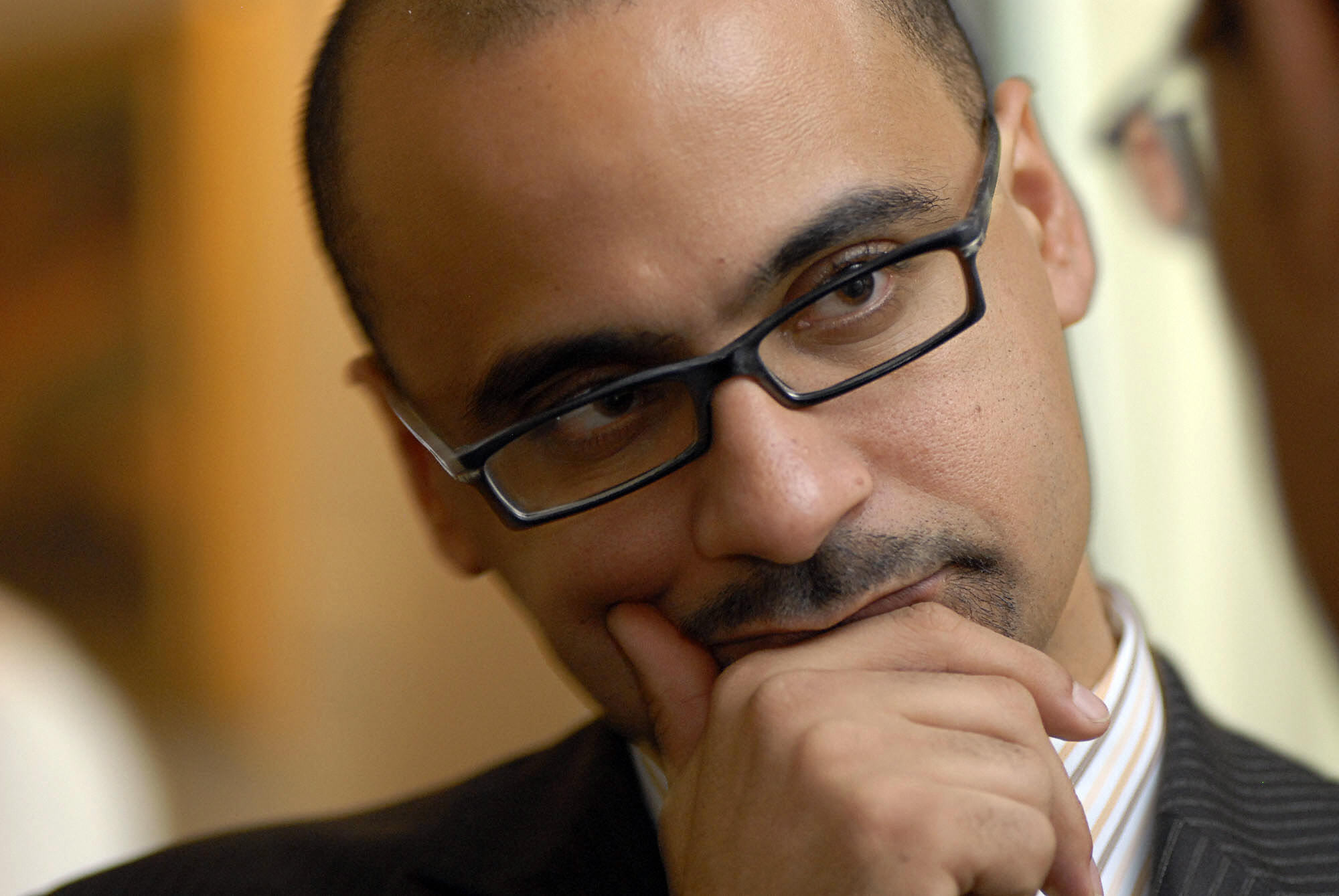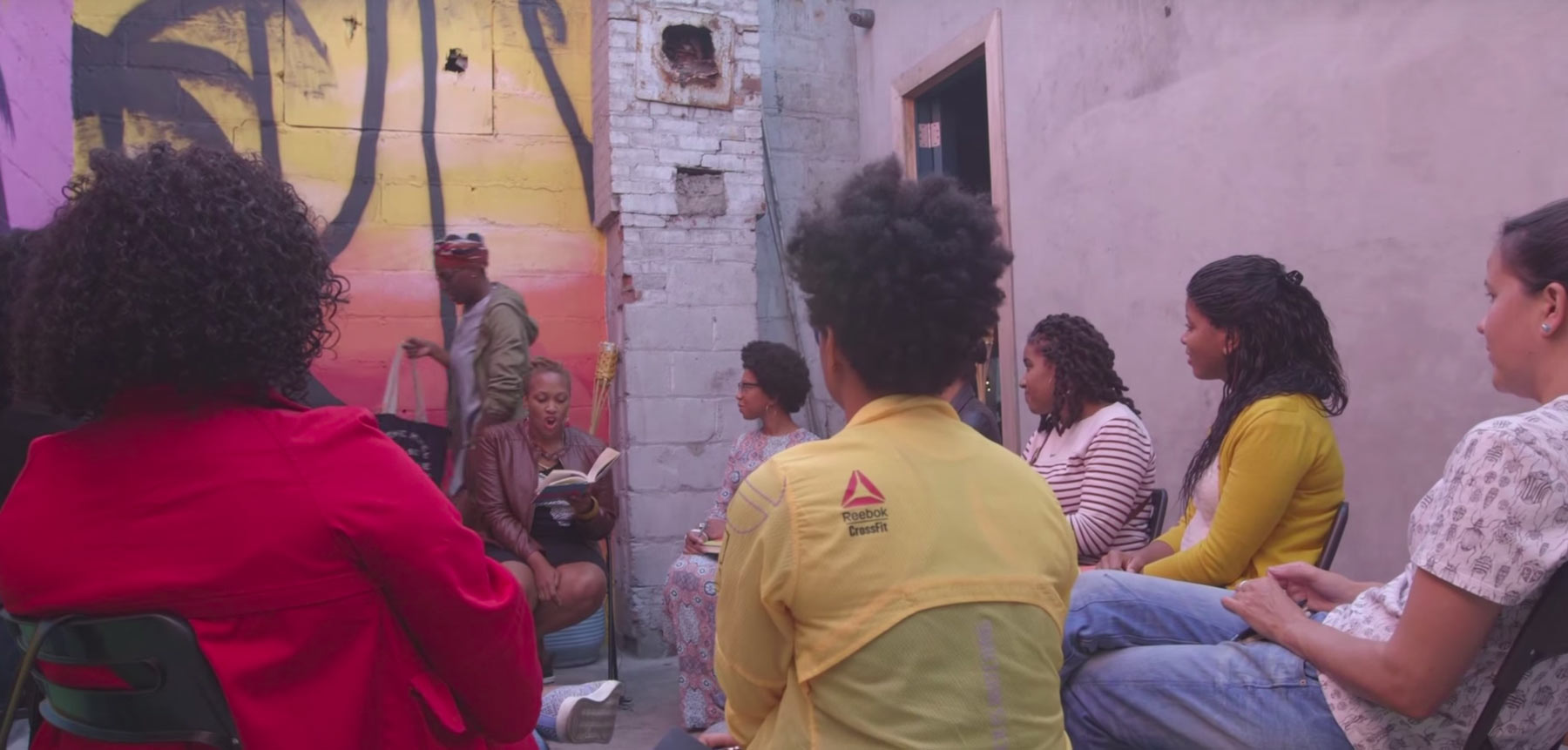A weekly newsletter for Pacific Standard Premium members.

(Photo: William Widmer)
Early Access to Online Features
Available Now: Our cover story about how the federal government is failing in its legal responsibility to ensure environmental justice for the country’s poor and minority communities. In “Failure at the EPA,” reporters Kevin Stark and Winifred Bird uncover how the Environmental Protection Agency isn’t reaching residents living near dozens of contaminated Superfund sites all across America.
And: Britni de la Cretaz goes inside one of America’s rehab high schools where kids with substance abuse issues can receive treatment. These recovery high schools have been shown to have positive effects on students who struggle with addiction. So, she asks in her story “Fresh Times at Rehab High,” why aren’t there more of them?
Plus: Elettra Pauletto watches Kenya’s deadly election unfold up close; and contributing writer Peter C. Baker reviews two new books, Bullshit Jobs: A Theory and The Trials of Nina McCall.
Coming This Week for Premium Members: Kate Wheeling travels to Peru to meet Australian plant ecologist Brenton Ladd in her story, “The Great, Chaotic Biochar Experiment.” Ladd wants to re-egineer the notoriously nutrient-poor soils in the Amazon and, in the process, save the world’s trees. But first, he has to convince farmers that he’s not just another crazy gringo with a bad idea.
And: Morgan Baskin crosses snowy terrain to find a river moving through the beautiful mountains of Yellowstone National Park in her story “The Poison in Our Water”—a river that is probably full of plastic contaminants. Baskin spoke with the scientists who are sorting out the best way to capture and measure the harmful microfibers that exist in most of our fresh water.
Visit psmag.com/premium for early access to other stories from our May issue.

(Photo: Stephen Brashear/Getty Images)
Don’t Miss: The State of Our Unions
News and analysis from Pacific Standard on the biggest stories of the week.
This week we launched a series that looks at the state of organized labor across the United States. Today, the footprint of unions has shrunk dramatically due to both the general decline of traditionally unionized private-sector industries in this country and more concerted efforts to weaken unions. However, through our in-depth looks at unions, “alt-labor” groups, and much more, we crafted a more nuanced and complex narrative of worker organizing in the 21st century than is generally disseminated. The worker in the 21st century may be down, but they’re not out:
- Songwriters are struggling to get fair compensation for their work. They are non-unionized and are dependent on largely outdated models of royalties payments that came long before the streaming-music era. We spoke to the people who have written some major hits about the future of this profession.
- Why have unions struggled to gain a similar foothold in America as their counterparts in Europe? Contributing writer Dwyer Gunn spoke to labor experts about the differences between the two situations, and why some of the differences may be intractable.
- Associate editor Elena Gooray spoke with the president of California’s largest teachers’ labor group, Eric Heins, about collaborations between charters and unions, the momentum for teachers’ unions since the West Virginia walkouts, and what it would really mean for public school systems to make charters “irrelevant.”
- A round-up of the strikes and protests organized by educators around the country who are frustrated with low pay and gutted school budgets.
- A conversation with Rutgers University professor Janice Fine about what you need to know about the “alt-labor” groups that are filling the voids left by shrinking unions.
- Staff writer Francie Diep looks at the comparative status and treatment of workers at two Boeing factories that sit on opposite sides of the country, one of which is unionized while the other is not.
- Editorial assistant Jack Denton spoke with two members of the Teamsters about the incipient threat of autonomous vehicles on the trucking industry.
- Twelve photos that show the evolution of the U.S. labor movement from the early 1900s to today.

(Photo: Ricardo Hernandez/AFP/Getty Images)
Dispatch: The L.A. Times Festival of Books
Each spring, the Los Angeles Times hosts what it calls “the largest book festival in the country.” This year the event included more than 900 groups plus hundreds of speakers who set up shop at the University of Southern California on April 21st and 22nd. Pacific Standard traveled to Los Angeles to take part. Like the city of L.A., the festival felt loose, so sprawled across the campus that many panels, even ones featuring high-profile writers like Claire Messud and Gabriel Tallent, unfolded with little fanfare—just some mild-mannered readers gathered in modest lines outside the engineering buildings.
Some writers well known to Pacific Standard readers appeared on panels during the festival, including Ijeoma Oluo, who spoke with us about her January book So You Want to Talk About Race; Luis Alberto Urrea, who wrote about Illinois for our Postcards From America project this March; Morgan Jerkins, who wrote on our website about finding support on Black Twitter that she couldn’t get from predominantly white MFA programs; and Lauren Markham, who reported a deep feature on the girl gangs of El Salvador for our September/October 2017 issue.
The victory laps for these talented and successful authors felt well deserved. What stuck out was a glimmer of anxiety surrounding one of the festival’s major audiences: What’s to be done for the children? In the prominent children’s section at the book fair, between booths where attendees could write their own short stories or tour a Dr. Seuss-themed bus, an exhibition entreated kids to learn “emotional banking”—a kind of practical approach to managing one’s feelings. Elsewhere, I spied a booth for W. Hans Miller, the author of Soothing: Lives of a Child Psychologist, which concerns “the search for ways to soothe ourselves and others” out of psychic pain. Not too far away sat the self-proclaimed “terrorist therapist,” Carole Lieberman, selling her book, Lions and Tigers and Terrorists, Oh My! and promising to teach parents “How to Protect Your Child in a Time of Terror.”
Even Junot Díaz, more or less the festival headliner, made appearances that focused on children. On Saturday afternoon, Díaz read from his illustrated children’s book, Islandborn. The choice felt especially poignant coming just five days after the publication of his moving, difficult essay in The New Yorker about being raped at age eight, and how that abuse continually disrupted his life. Díaz made careful reference to those experiences during his talk on Sunday morning.
According to its organizers, the festival has always included a children’s stage and related programming. But the notes on trauma felt timely amid the increased visibility, if not an actual increase, of mental-health problems among the young. A paper published last week found that significantly more parents reported an anxiety diagnosis for their children in 2012 than in 2007, reinforcing headlines from the past two years declaring a teen anxiety crisis.
But hints of crisis at the festival came with talk of at least partial resolution. Díaz’s essay ends on a note of release and imperfect healing. During a panel about exploring different versions of family through fiction, the novelist and writer Rachel Khong recommended another work that documents how someone survived childhood trauma: Terese Marie Mailhot’s memoir Heart Berries, published in February. Readers should look for Mailhot’s powerful essay on enduring that trauma and going on to confront racism in academia in our forthcoming May issue, and available right now for our premium subscribers.
—Elena Gooray, Associate Editor

PS Picks
Black Writers Are More Than Just Sensitivity Readers: In December of 2017, the New York Times published an article titled “In an Era of Online Outrage, Do Sensitivity Readers Result in Better Books, or Censorship?” To its detriment, the Times piece heavily centered on the feelings of white authors. One writer worried that if “‘sensitivity readers’ are given the freedom to hijack authors’ visions, we’re going to lose some beloved works of art that we could have otherwise enjoyed.” Another asked, “Can we no longer read ‘Othello’ because Shakespeare wasn’t black?” There were many problems with this article, mainly that it positioned sensitivity readers as being detrimental to the creation of good literature. But the other problem with the article? It failed to note that the reason we need sensitive writers in the first place is because people of color are not telling their own stories—it’s white people looking in from the outside.
The best cure to sensitivity readers, if we insist we need them, is ultimately to pass the mic. As Dhonielle Clayton, who was quoted in the original Times article, but found issues with its final form, tweeted about the piece: “I’d also like to discuss how the reason I’ve done over 35 sensitivity reads this year alone is b/c publishers aren’t hiring black content creators but everyone wants to write about black people.” Since then, black-owned organizations and book fairs have been springing up to provide support to black authors and readers, most notably, Well-Read Black Girl, a book club founded by Gloria Edim. Last weekend, she picked up the Innovator’s Award from the Los Angeles Times during its annual book festival. Another black-owned organization that focuses on literature is Noir Reads, which is a literature subscription box that delivers books by black authors monthly to readers.
—Chinelo Nkechi Ikem, Editorial Intern
The Heart: On one particularly memorable episode of The Heart, a longstanding Radiotopia podcast, host Kaitlin Prest asks the men in her life about sexual consent—about situations they’ve been in where consent was pushed or ignored—and begins with an interview with her father, who shares a story from college, in which he kissed someone too drunk to say “yes.” In The Heart, a podcast with a stated mission of challenging “the way that we think about love, sex, and gender,” open and frank discussions like these are always front and center, no matter how awkward they may seem. During a mini-season called “No,” for example, which focuses on the complexities of power and consent in romantic relationships, Prest dives into her own experiences with consent and non-consent in an attempt to examine the more unspoken aspects of intimacy.
The Heart, which originated in 2008 as a college radio show at McGill University, averages more than two million listeners each year. In every episode of the podcast’s seasons, which range from four to 15 episodes in length, Prest examines human sexuality and intimacy. The Heart critically (and refreshingly) analyzes the concept of consent as a product of cultural and historical forces—ones that have reduced it to a simple “no means no” definition. Prest places a particular focus on layered power dynamics—from gender to age differences—and carefully considers how those dynamics affect the ways a “no” may be perceived or distorted. (And while The Heart announced its final season last December, Prest is working on another promising project.) After a landmark year in which “silence breakers” like Ashley Judd and Susan Fowler were made Time‘s 2017 Person of the Year, The Heart reminds us that there is still work to be done.
—Kristina Kutateli, Contributor
PS in the News
A look at where our stories and staff surface in the national conversation.
- Editorial Assistant Jack Denton’s piece about the income struggles of songwriters in the streaming era was included in the Los Angeles Times‘ daily headlines newsletter.
- Contributing writer James McWilliams’ look at a study that shows how universities are exploiting black male athletes was selected as one of the week’s most interesting headlines by JSTOR Daily.
- Urban Institute shared contributing writer Dwyer Gunn’s insights into what Lowell, Massachusetts, can teach us about inclusive economic recovery.
- The Center for Advanced Study in the Behavioral Sciences at Stanford University tweeted our State of the Unions Week series.
- The74million included associate editor Elena Gooray’s breakdown of education labor strife across in the United States in its EduClips round-up of must-read stories.
The Conversation
A Tale of Two Boeing Factories (PSmag.com, April 26th)
- Good article! The last interview with Chen really illustrates how we empathize for the stockholder’s needs to make consistent and massive profits regardless of the effect on the workforce and products. I think it’s a fine example of how people constantly talk themselves out of what should be their due rewards for long and loyal service. There seems to be no long-term thought being given in our business culture these days. It’s all about short-term profits, the easiest way of course being to drop costs and because material costs are not going down, they cut human costs. —DaveAnyc
What Caused the Decline of Unions in America? (PSmag.com, April 24th)
- Unions have failed to change with the times. As usual they are behind the eight ball and are playing catch up. Will they change enough, fast enough to survive? —Bruce Hodsdon
If you have any thoughts about this newsletter or our work—what you like/didn’t like/want to see more of—you can reach us at premium@psmag.com. If you’re not already, become a premium member by following the button below. As we continue to build out the benefits of a premium membership to Pacific Standard, we want to hear what would be most valuable to you.





